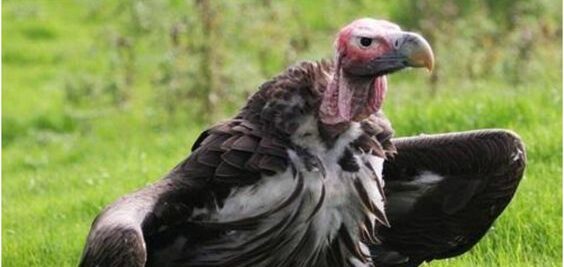Nigeria
NCF asks Nigerians to save the vultures to stop their extinction

On Sunday, the Nigerian Conservation Foundation (NCF) urged conservation of Nigeria’s dwindling vulture population in order to stop its extinction and impending epidemic.
In a statement released in Lagos, Mr. Oladapo Soneye, Communications Manager, NCF, stated that vultures are the only type of birds and other wildlife that consume dead animals without releasing disease into the environment.
In contrast to other scavengers, vultures are the only species of bird or wildlife that consumes dead animals without releasing disease into the atmosphere, according to Soneye.
He warned that illnesses like rabies and anthrax could spread if vultures were not present.
The NCF, according to Soneye, has started a rescue operation dubbed “Supporting Community-based Monitoring and Conservation for Vulture Populations in Identified Vulture Safe Zones across Nigeria.”
The mission’s objective, according to him, was to address the vulture population decline and its benefits to the populace.
He claims that the endeavour, which is funded by the Indianapolis Zoo, is one of several initiatives to protect the nation’s last vultures.
On September 2, the entire world observed International Vulture Awareness Day (IVAD).
“The NCF is utilising the occasion to raise awareness about the value of vultures in our society and to highlight some crucial initiatives it has implemented to assist alleviate the crisis.
One of the foundation’s initiatives, the Vulture Safe Zones (VSZ) project, aims to save the remaining vulture populations in their natural habitat and promote sustainable livelihoods, according to Soneye.
He continued by saying that the foundation also made use of the VSZ initiative to protect the ecological advantages of the species and to foster harmonious cohabitation between humans and vultures.
The NCF communication manager mentioned that the VSZ initiative also aimed to halt the downward trends in the viable vulture populations discovered in two particular locations in Nigeria.
He described how some of the VSZ efforts involved engaging stakeholders in the identification of dangers and the creation of livelihood alternatives to those concerns.
The local community was also trained in monitoring the vulture population, he continued.
These events took place on July 20 and 21 at the community centre for Iruowelle Village in Awka-Etiti, Idemili South Local Government Area, Anambra State.
“The training focused on raising the capacity of community-based volunteers within the zones to methodically observe and report the trends in vulture populations in their community,” the man stated.
Soneye argues that the trainings are crucial because they encourage community awareness and respect for various animals.
“The volunteers were also supported with monitoring equipment, which included six binoculars, two GPS units, two mobile phones, data sheets, and other writing materials,” he stated.
Soneye emphasised that seven of the 11 vulture species that existed in Africa were found in Nigeria.
The Egyptian Vulture, Neophron Percnopterus (Endangered), the Hooded Vulture, Necrosyrtes Monachus (Endangered), and the White-backed Gyps Africanus (Endangered) were among the seven vulture species he recognised as being in Nigeria.
Other vultures include the White-headed Vulture (Trigonoceps Occipitalis), Ruppell’s Griffon (Gyp Rueppellii), Palm-nut Vulture (Gypohierax Angolensis), and Lappet-faced Vulture (Torgos Tracheliotus), according to Soneye.
The Hooded Vulture and the Palm-nut Vulture were the two vulture species, he continued, that appeared to be doing well in the nation. (NAN)
